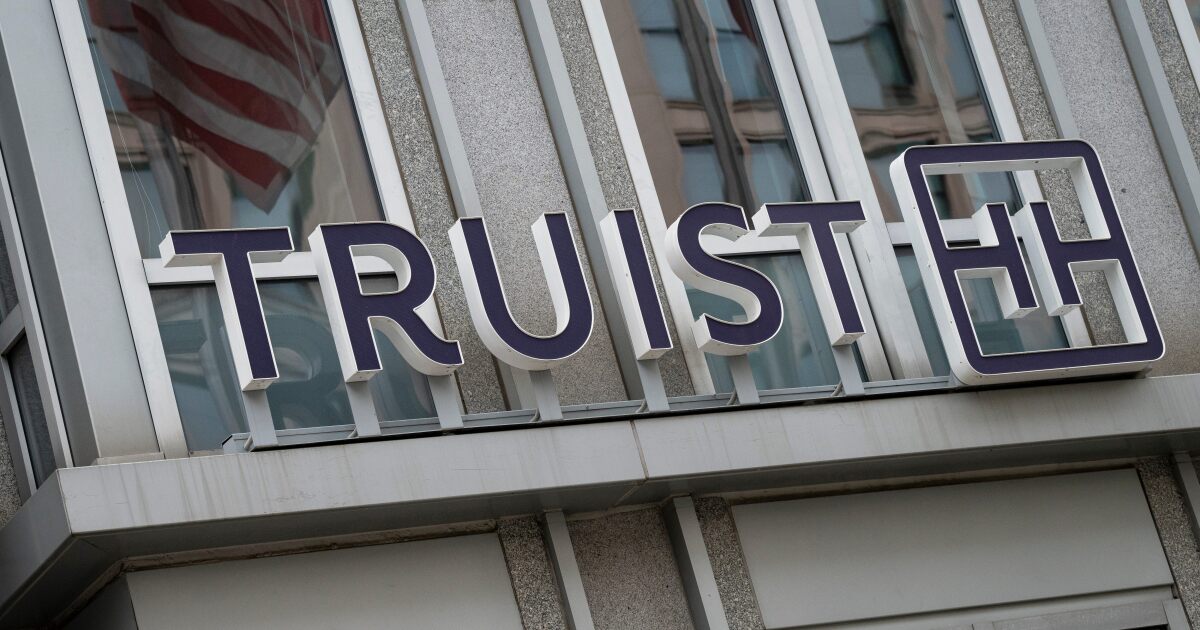
This news is developing. Please check back here for updates.
Truist Financial reaped the benefit of a bounceback in investment banking activity during the third quarter, with such fees surging 80% year-over-year and giving a lift to the bank's profits.
The Charlotte, North Carolina-based company on Thursday reported investment banking and trading income of $332 million for the period ended Sept. 30, up from $185 million in the year-ago quarter. Total fee income climbed about 11% from a year ago, due to increased bond and equity originations and higher structured real estate income, Truist said in a press release.
Investment banking revenue has been gaining momentum across the industry, including at Truist, which has so far logged an uptick in such fees during every quarter of this year.
The boost contributed to the super-regional bank's earnings. Net income rose to $1.4 billion, or 99 cents a share, from $1.2 billion, or 80 cents a share, during the year-ago period. Earnings per share topped the estimate of 92 cents a share that was predicted by analysts polled by S&P.
Revenue totaled $5.1 billion, up from $4.9 billion in the same quarter last year.
Expenses declined 5.4% from a year ago due to decreases in areas such as personnel and restructuring charges, Truist said. It slightly tweaked its guidance for full-year 2024 adjusted expenses, saying it now expects those to be "less than flat" compared with the prior year. Adjusted expenses exclude the amortization of intangibles, restructuring charges and other selected items, the company said.
Truist reiterated its guidance for full-year adjusted revenues, which are expected to decline between 0.5% and 1.5% for the entire year. Adjusted revenues include securities gains or losses.
Provisions for credit losses fell 9.9% to $448 million. "The decrease in the current quarter provision expense primarily reflects a lower allowance build, partially offset by additional reserves related to Hurricane Helene," the company said.
Truist, which had $519 billion of assets through the end of September, "continued to see solid momentum" in its core banking businesses during the third quarter, "as evidenced by strong year-over-year growth in investment banking and trading revenue and continued expense discipline," Chief Executive Officer Bill Rogers said in the press release.
The North Carolina bank lowered its medium-term target for return on tangible common equity target, reflecting the fact that the financial projections for the merger of BB&T and SunTrust Banks have not come to fruition.
Truist has been on a performance-improvement path for several quarters. In September, it
That is lower than what the company set out to achieve when it was formed in 2019 by the merger of BB&T and SunTrust Banks. At that time, it aimed for a return on tangible common equity in the low-20s, but it only surpassed 20% one time in the years since, in 2022.
The reset was necessary due to the completion of the
Truist's return on tangible common equity was 13.8% in the third quarter. That compares with 10.4% in the second quarter, 16.3% in the first quarter and 18.9% for all of 2023.
Truist's shares fell in pre-market trading before rising. Year to date, shares are up about 21%.



